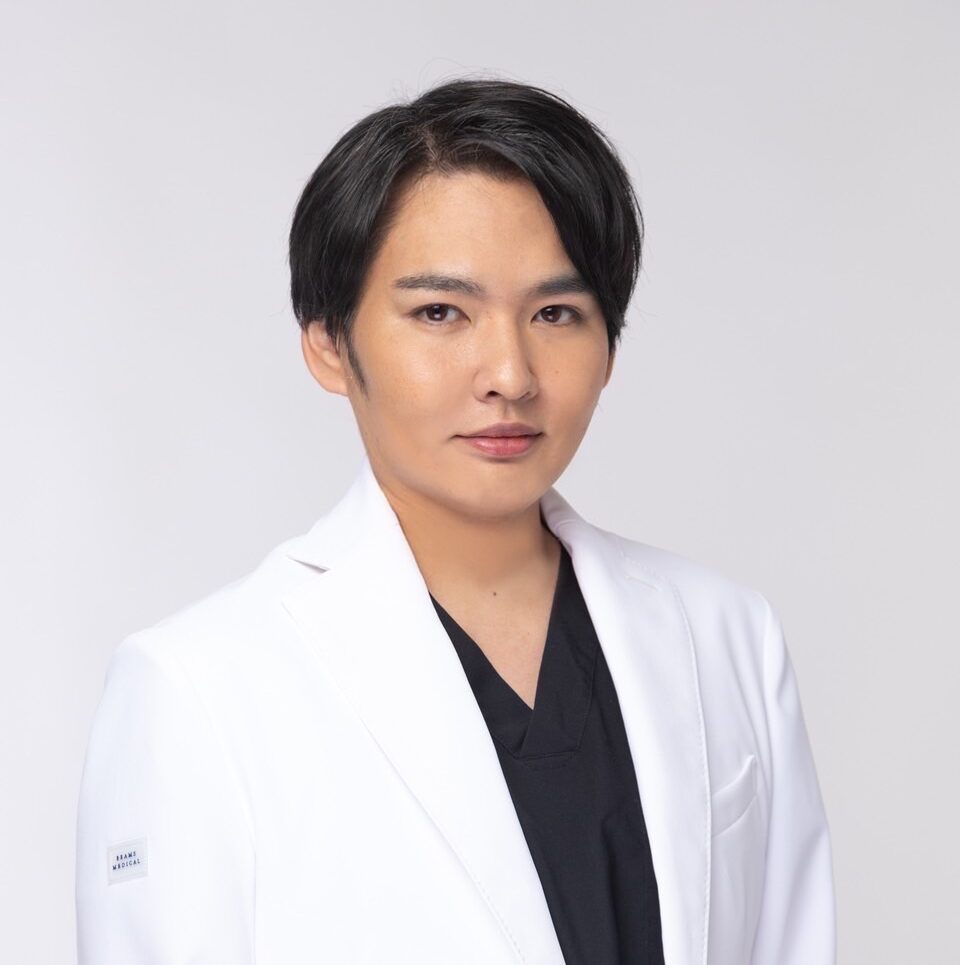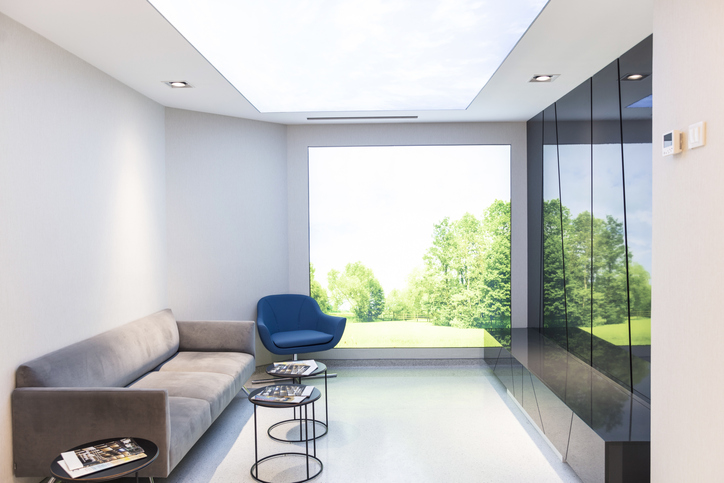In today's society, there is an ever-increasing interest in preventive medicine. Maintaining good health and preventing disease are essential not only for longevity, but also for improving the quality of daily life. The perspective of prevention is becoming especially important in cosmetic medicine as well.
Here we detail what preventive medicine is, how to incorporate it into your daily life, and how it relates to cosmetic medicine. We offer a practical guide for those seeking to balance health and beauty.

Graduated from the Faculty of Medicine, National Kumamoto University. After serving as the director of major beauty clinics in Japan, etc., he opened Aladdin Aesthetic Clinic in 2023. He is a professional in aesthetic medicine with a doctorate in anti-aging research and many years of experience. With the motto of "Toward the realization of cosmetic medicine without lies," he aims to be the "Only One" together with his patients.
What is Preventive Medicine? Basic Concepts of Preventive Medicine

Preventive medicine refers to a medical approach to reducing the risk of disease and health problems before they occur and to maintaining good health. Whereas conventional medicine focuses on treating disease, preventive medicine aims to prevent the onset of disease.
This allows people to manage their risks and maintain their health before disease develops. Preventive care includes routine health management, regular checkups, and vaccinations, all of which are closely related to individual lifestyle habits.
History and Background of Preventive Medicine
The concept of preventive medicine can be traced back to ancient civilizations. Hippocrates of ancient Greece preached that it is more important to prevent than to cure, and stressed the importance of a lifestyle to maintain good health. Later, in medieval Europe, public health measures were introduced to prevent the spread of epidemics, and the concept of preventive medicine gradually developed until the modern era.
In the modern era, preventive medicine has evolved rapidly. Particularly since the 20th century, immunizations and improved sanitation have curbed many infectious diseases and greatly increased average life expectancy. With this, the importance of health maintenance and disease prevention has become increasingly recognized, and today preventive medicine is established as one of the mainstream medical treatments.
Key Goals and Approaches of Preventive Medicine
The primary goal of preventive medicine is to maintain good health by reducing the risk of developing disease and disability as much as possible. To accomplish this, preventive medicine takes a three-level approach
- Primary Prevention
Primary prevention refers to efforts to prevent the occurrence of disease. These include establishing healthy lifestyles, immunizations, dietary management, moderate exercise, and smoking cessation. These efforts are aimed at reducing the risk of developing disease through individual lifestyle modifications. - Secondary Prevention
Secondary prevention aims at early detection and treatment of diseases. Regular physical examinations and health checkups are included in this level. By identifying risk factors before the disease develops and taking appropriate measures, the progression of the disease can be controlled. - Tertiary Prevention
Tertiary prevention includes treatment and rehabilitation to prevent the progression of an already developed disease and to avoid recurrence and complications. At this level, the goal is to improve the quality of treatment and quality of life (QOL).
By combining these approaches, preventive medicine provides comprehensive support for individual health with the goal of extending healthy life expectancy and improving quality of life.
Benefits of Preventive Medicine
Preventive medicine is more than just a means of preventing disease; it offers many benefits throughout our lives. One of the most important benefits of preventive medicine is the extension of healthy life expectancy and disease prevention. Healthy life expectancy is not just about living longer; it is the period of time during which a person can lead a healthy and independent life. By incorporating preventive medicine, the risk of developing lifestyle-related and chronic diseases can be significantly reduced.
It also greatly contributes to maintaining and improving mental health as well as physical health. Moderate exercise, a well-balanced diet, and adequate sleep not only maintain physical health, but also help reduce stress and improve mental health.
For example, regular exercise stimulates the release of endorphins in the brain, which stabilizes mood. In addition, nutrients consumed through diet have a direct impact on brain function and emotional regulation. This helps prevent mental health problems such as depression and anxiety disorders, and keeps the body and mind healthy.
Furthermore, from a long-term perspective, it can contribute significantly to reducing medical costs. While treatment after a disease has developed takes a lot of time and costs, these costs can be significantly reduced if the disease can be prevented through preventive medicine.
On the other hand, improving quality of life is another important benefit of preventive medicine. A healthy life free from the restrictions imposed by illness is the foundation for a rich and fulfilling life, with increased opportunities for self-fulfillment and social participation.
Relationship between preventive and cosmetic medicine

Preventive medicine and cosmetic medicine may seem like different areas, but they are in fact deeply related and synergistic with each other to achieve a healthier and more beautiful life.
This section details the role of prevention in aesthetic medicine, the reasons why preventive medicine enhances aesthetic results, and the synergistic effects of specific aesthetic and preventive medicine.
The Role of Prevention in Aesthetic Medicine
Prevention plays a very important role in aesthetic medicine. By adopting the concept of preventive medicine, it is possible to delay the aging of the skin and body and maintain beauty through routine care. In cosmetic medical procedures, it is essential to take measures before a problem occurs, not only to treat a problem after it has occurred, in order to maintain long-term cosmetic results.
For example, the use of sunscreen to protect against ultraviolet rays and moisturizing through proper skin care prevent the development of spots and wrinkles. In addition, lifestyle modification (diet, sleep, and exercise) are also basic preventive measures to maximize the effects of cosmetic treatments. By incorporating these preventive approaches, the effects of the treatment can be maintained for a longer period of time and the natural beauty of the skin can be preserved.
Why Preventive Medicine Enhances Cosmetic Benefits
The reason preventive medicine enhances beauty is that health and beauty are closely related. A healthy body and mind form the foundation of beauty. Maintaining a healthy lifestyle through the practice of preventive medicine improves the body's metabolism, which in turn improves the quality of skin, hair, and nails.
Consuming antioxidant foods also reduces free radicals in the body and slows down the aging process. Adequate sleep promotes skin regeneration and prevents dark circles and puffiness around the eyes. Regular exercise not only stimulates circulation and gives the skin a natural glow, but also contributes to stress reduction. These healthy habits support cosmetic procedures, speed recovery after the procedure, and lead to long-lasting results.
Synergy between specific cosmetic and preventive medicine
The synergy between preventive and cosmetic medicine is evident in specific procedures and care.
Skin care is an area where the integration of aesthetic and preventive medicine is most evident. Routine skin care helps maintain skin health and prevent problems before they occur. For example, cleansing, washing the face, and keeping the skin moisturized will protect the skin from clogged pores and dryness, and prevent acne and blemishes.
Furthermore, proper skin care after cosmetic medical procedures can maximize and maintain the effects of the procedure for a long period of time. For example, the skin is in a delicate state after laser treatment or peeling, but proper aftercare reduces inflammation and promotes skin recovery.
On the other hand, preventive medicine plays a very important role in aging care. Symptoms that appear with age, such as wrinkles, sagging skin, and dullness, can be delayed by routine preventive measures. For example, taking appropriate nutrients can promote the production of collagen, which maintains skin elasticity and reduces signs of aging.
Botox, fillers, and laser lifting are commonly used in cosmetic medicine, but these procedures can also be combined with a preventive approach for a more natural and long-lasting effect. For example, in combination with regular moisturizing and UV protection, the skin tightening effect of the procedure can be maintained longer.
Specific points to address preventive medicine

Preventive medicine aims to prevent illness through various health management methods that can be incorporated into daily life. In this section, we will discuss in detail the specifics of preventive medicine, including daily health management methods such as diet, exercise, and sleep, as well as the importance of immunizations and regular health checkups, and early detection of health risks and countermeasures. These elements are the basis for practicing preventive medicine and the foundation for a healthy lifestyle.
Routine health care methods
Health management in daily life is essential for effective preventive medicine. Diet, exercise, and sleep are fundamental elements in maintaining good health and preventing disease.
meal
A well-balanced diet is an important means of maintaining a balance of nutrients in the body and enhancing immunity. For example, an active intake of fruits and vegetables rich in antioxidant vitamins and minerals prevents cellular aging and increases resistance to disease. In addition, fish and nuts containing omega-3 fatty acids have been shown to reduce the risk of heart disease and stroke.
In addition, it is important to avoid excessive consumption of processed foods and sugar. These can be factors that increase the risk of obesity and diabetes. Adequate caloric intake and a nutritionally balanced diet are the foundation for maintaining good health.
motion
Moderate exercise is essential for physical and mental health. Regular exercise not only improves cardiorespiratory function and reduces body fat, but also reduces mental stress and has a positive impact on mental health.
Incorporating 150 minutes per week of moderate-intensity aerobic exercise (e.g., walking, cycling) and strength training can significantly reduce the risk of lifestyle-related diseases. Exercise also has a synergistic effect with cosmetic medicine, as it promotes metabolism and enhances cosmetic effects.
sleep
Quality sleep is essential to refresh the body and brain. Sleep deprivation and irregular sleep are known to increase the risk of immune system weakness, obesity, and cardiovascular disease. For adults, 7 to 9 hours of sleep each night is recommended.
Growth hormone, which is secreted during sleep, also plays an important role in aesthetics by promoting skin regeneration and repair. A proper sleep environment is very beneficial for both preventive and cosmetic medicine.
Importance of vaccinations and regular health checkups
Immunizations and routine health checkups are essential components of the practice of preventive medicine. Immunizations are a means of obtaining prior immunity to certain infectious diseases and play an important role in protecting the health of individuals as well as society as a whole. For example, influenza, pneumococcal infection, and HPV vaccines are widely recommended to prevent serious diseases.
Immunization can prevent the onset of disease and avoid serious illness. In addition, the spread of infectious diseases can be controlled by society as a whole through the effect of collective immunization.
Regular health checkups are also an important tool to monitor health status and detect potential health risks at an early stage. Medical checkup items such as blood tests, cancer screenings, and electrocardiograms help in the early detection and prevention of diseases.
For example, since symptoms of hypertension and diabetes are unlikely to appear in the early stages, it is important to detect abnormalities at an early stage through regular health checkups and take appropriate measures. Early detection enhances the effectiveness of treatment and prevents the progression of the disease.
Early detection of health risks and countermeasures
In preventive medicine, early detection of health risks and appropriate countermeasures directly lead to an increase in healthy life expectancy. Early Detection of Health Risks
Early detection is the first step in preventing disease progression.
For example, early detection of cancer, cardiovascular disease, and diabetes can facilitate successful treatment. Through regular health checkups and self-management (blood pressure measurement, weight control, etc.), people are expected to raise their awareness of health risks.
Early detection of health risks requires prompt and appropriate measures. Under the guidance of a physician, a combination of lifestyle modifications and drug therapy can prevent the onset of disease. Stress management and mental health care also contribute to overall health maintenance.
summary
Preventive medicine not only protects health and prevents disease, but also plays a major role in cosmetic medicine. By incorporating it into your daily life, you can not only extend your healthy life expectancy and improve your quality of life, but also maximize your cosmetic benefits. Practicing preventive medicine is an investment in your future self. Use the information presented here to adopt preventive medicine today and start living a beautiful and healthy life.
At Aladdin Aesthetic Clinic, based on our many years of experience in cosmetic medicine and cosmetic dermatology and the knowledge of our doctoral degree, we provide counseling that aims to be "only one", offering the best treatment for each person we meet. We offer only the necessary treatments without any unnecessary information or suggestions.
Feel free to use our official LINE account for 24-hour counseling and reservations. Please feel free to contact us for free counseling for the first time or if you have any concerns.






